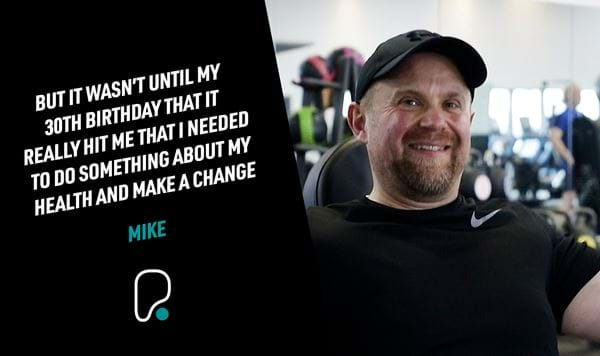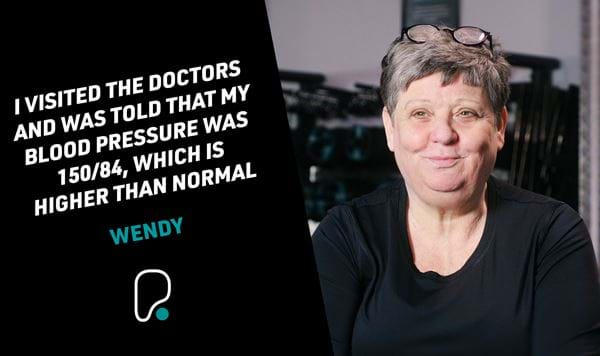Managing Stress for Wellbeing and Health

Stress can affect you in many ways, both physically and emotionally, and it may make you feel worried, anxious, tense and maybe even a little frazzled.
We all feel stressed at times, and although stress can’t cause heart and circulatory diseases, prolonged stress often leads to poor quality sleep and unhealthy coping mechanisms which can increase your risk.
Managing stress is no easy feat, but it’s important to try and manage stress the best you can and practice self-care to look after your heart health and general wellbeing.
In this week’s educational blog, we’ve got heaps of practical tips to help you spot stress at the onset, manage stress better, and learn more about building resilience to stress.
What is stress?
We’ve all felt stress at some point in our lives. Whether it’s financial stress, stress to hit a big deadline or internal stress we put on ourselves to meet expectations.
Medical professionals are still discussing whether stress is the cause of problems or the result of them – and in many situations, it could even be both.
All we know is that in the big picture, stress can be overwhelming and too much stress can negatively impact your physical and mental wellbeing, including your heart health.
How does stress affect my body?
When you’re stressed your body releases a high level of cortisol and adrenaline, two hormones which increase your heart rate, blood pressure and blood sugar levels to deal with the ‘problem’ at hand.
This fight or flight system is handy when you’re in immediate danger, but often it’s switched on when we’re not.
Over time, and in prolonged periods of stress, this can lead to problems such as anxiety, exhaustion, digestion issues, irritability, weight gain and brain fog.
Stress and worry can also negatively influence your quality of sleep, which can in turn make you feel more stressed and less capable of facing the issues head-on.
Ultimately, stress is a viscious worry cycle that we need to try and break.
How do I know if I’m too stressed?
Everybody is unique, so the feeling of stress may manifest in different ways. Getting in tune with your body and being able to spot the signs is therefore a great first step to being able to manage your stress quickly.
Although stress symptoms can differ from person to person, some common physical and emotion signs of stress may start to creep in when it’s getting out of control. Look out for these signs:
Physical signs of stress
- Feeling like your heart is acing or missing beats (heart palpations)
- Headaches, feeling dizzy or sick
- Tiredness and trouble sleeping
- Sudden weight loss or gain
- Bad temper or lack of patience
Emotional signs of stress
- Upset
- Feeling scared, anxious, panicked, or worried often
- Easily becoming angry or tearful
- Feeling alone
- Feeling numb and uninterested
Does stress increase my risk of heart disease?
Stress can’t cause heart and circulatory disease, but common coping mechanisms for stress such as smoking, drinking more alcohol and overeating can increase your risk.
In the moment, these things can make you feel relaxed, but in the long run, it can harm your heart health.
Taking care of yourself when feeling stressed, by practising self-care, eating well, getting enough sleep, and speaking with family and friends are better choices to look after your wellbeing and heart too.
Does stress cause high blood pressure?
It’s normal for your blood pressure to increase for a short time if you’re feeling stressed, but once the stress has passed your blood pressure should go back to normal.
It’s the unhealthy habits and coping mechanisms often linked to stress, such as increased alcohol consumption, smoking and unhealthy eating which can cause long-term high blood pressure.
This can damage your heart and arteries over time, which increases your risk of developing heart and circulatory disease.
How can I reduce my stress levels?
Stress is your body’s response to pressures from challenging situations, so identifying what those pressures are is a great place to start.
That might be the pressure of a looming deadline, financial worries, big life changes or struggling with a work-life balance.
Some stress and pressure can be good for performance (we talk about the pressure-performance curve later in this blog) but spending too much time in a high-stress mode is something you want to avoid.
Dealing with high levels of stress before it can get worse is really important. Here are a few tips on how to manage your stress and reduce stress levels:
- Identify any triggers: Take some time to reflect on things that may be adding pressure to your life and try to identify any triggers or patterns to your stress. A diary may be helpful to spot any themes. From there, you can look to small lifestyle changes to help reduce stress, overwhelm, and pressure from external sources.
- Make time to practice self-care: If you’re stressed and short for time about a looming deadline, it may seem counterintuitive to make time to practice self-care. But it’s important to remember that you can’t pour from an empty cup. Simple things like taking a walk, eating well, or giving yourself time to read a book and unwind before bed are ways to practice self-care.
- Change the way you think about the situation: Sometimes you can’t change the situation, but you might be able to change the way you think about the scenario which helps to ease the pressure and stress you feel. It can be hard to do, but it can stop worry and overwhelm from things out of your direct control.
- Try box breathing to calm your mind: Box breathing is a technique where you breathe deeply, hold the breath, exhale and breathe out for 4 seconds each time. It can be very effective when you’re feeling particularly overwhelmed with stress.. Give it a try in moments of panic or overwhelm to ground yourself.
- Use the pressure-performance curve to your advantage: This explains how the right level of stress can be the ideal way to produce great work, and how we can use stress in our favour to improve our performance. As the diagram shows, too little pressure and stimulation can leave us feeling demotivated and bored. Too much pressure can leave us feeling overwhelmed, stressed out and unable to function at our best. The sweet spot is in the middle, where we are sufficiently challenged but the demands do not exceed our capacity to deal with them.
- Try to develop emotional resilience: Resilience is the emotional strength to cope with stress, and adversity and bounce back from difficult life challenges. Check out our tips below to build better resilience to help you look after your mental wellbeing.
How can I build emotional resilience?
Building resilience to stress is a great long-term strategy to help you look after your mental wellbeing. Dr Sarah Hattam, from Concilio Health, has shared her 8Ps to help build resilience that you can try to implement in your life:
- Permeance: Remember that no matter how difficult the current situation seems; it will pass eventually.
- Pervasiveness: Try not to let challenges in one area of your life spill over and affect others.
- Personalisation: Don’t let a difficult situation affect how you see yourself or your self-esteem.
- Passion: Find passion and meaning in some aspects of your activities – whether at work or in other areas.
- Positive mindset: Accurately appraise the positive and negatives of a situation and try to be ‘glass half full’. You may find it helpful to keep a gratitude diary and write about 3 small things each day that you are thankful for. This has been shown to reduce stress levels and increase resilience.
- Prioritisation: Choose to differentiate between the important and the urgent and prioritise effectively to avoid unnecessary pressure and stress.
- Problem-solving: Try to think outside the box and break down complex problems and smaller parts to solve them rather than feeling overwhelmed by the big picture.
- Avoid Perfectionist thinking: Stressing about not performing your best because you’re stressed is a vicious cycle you need to try and break. Try to accept that if you’re under stress ‘good enough’ is often okay and everything doesn’t need to be perfect.
Want to learn more?
Interested in finding out more about looking after your heart health? The experts at the British Heart Foundation have created an extensive information hub to help you here
Want to join the Healthy Hearts Programme?
Developed exclusively by experts at PureGym and the British Heart Foundation, our app programme takes you through an 8-week journey of workouts, recipes, and top tips to help you take control of your heart health.
Our quick workouts and healthy recipes are easy to build into your week. We’ll show you how to care for your heart every day.
Your heart health matters, together, let’s look after it.


